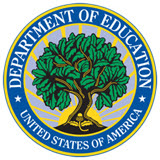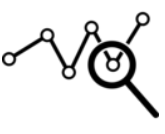Message From Director Laurie VanderPloeg

Hello, Stakeholders.
There is no question that effective personnel are a key to improved outcomes for infants, toddlers, children and youth with disabilities and their families. There is also no question that attracting, preparing, and retaining effective personnel is a concern for many lead agencies for Part C, early intervention services providers, State education agencies, and local education agencies. Lack of effective personnel disproportionately affects children with disabilities and their families due to the many unfilled positions and high attrition rates among early childhood personnel, special education teachers, and related services providers. Throughout my tenure, OSEP has been out-front on this issue. OSEP’s latest offering facilitated an opportunity to learn how other industries address attracting, preparing, and retaining effective personnel. On Oct. 27–29, OSEP hosted a virtual summit on improving effective personnel. The event drew over 5,000 participants who listened and learned from key organizational leaders who shared their perspectives, experiences, and effective strategies that we could apply to attract, prepare and retain special education personnel within our educational profession. They explored innovative and creative possibilities which challenged us to think differently about how best to address this critical issue. As we move toward improving results for our children with disabilities, we must ensure that each child has a positive relationship with an effective provider or teacher who has the knowledge and skills needed to deliver effective instruction, interventions, and supports and services.
We collectively need to support the practices and systems that ensure that every child, and especially children with disabilities, receive services from effective personnel. OSEP is committed to continuing the discussions and the work being done by organizations, training institutions, schools, and individuals all over this county. To that end, OSEP will be facilitating focus groups with identified key stakeholders to develop action plans on topics such as certification pathways, preservice experiences, media campaigns, grow your own programs, organizational memberships, coaching, mentoring and induction programs, administrative support, and equity.
The virtual summit referenced above was the culminating event in the Attract, Prepare, Retain symposia series. All events are posted on OSEP Ideas That Work. OSEP also maintains an Effective Personnel for All webpage to provide resources. Our OSEP TA Center resources are also available to support your efforts.
OSEP is committed to engaging with you and supporting you in your individual and collective efforts and I would challenge us all to engage in broader collective efforts to ensure that we Find One, Grow One, and Thank One. We must elevate our profession by disseminating promising practices and celebrating the great results we are collectively achieving. Best wishes as you continue to move into the 2020-21 school year. Stay safe and stay healthy!
|

IDEA Topics in the Current COVID-19 Environment
You can find the following COVID-19 documents and other related resources on the IDEA.gov COVID-19 page.
|


Office of Elementary and Secondary Education (OESE)
OSEP would like to share resources from OESE that are readily applicable to children with disabilities. OESE’s Resources for Education Providers and Families page now includes Social Emotional and Behavioral Support Resources, which can be utilized by state and district leaders, schools and educators, and parents and families to support the well-being of students and educators as they confront the challenges of learning following natural disasters and during the national health crisis.
Additionally, the National Center published a new collection of resources to support Regional Centers, SEAs, LEAs, educators, and parents as they collectively navigate schooling during times of disruption. These resources meet the needs of students and educators by supporting access to the general education curriculum and environment for children with disabilities.


CDC Guidance for Child Care, Schools, and Youth Programs
The Centers for Disease Control and Prevention maintains a web page that provides information for child care, schools, and youth programs to plan, prepare, and respond to COVID-19. Topics include:
- If you're open
- Deciding to open
- Ongoing mitigation strategy
- Prevention and support
- Communication resources
|

Did You Know?
In school year 2018–19, 6.75% of the population, ages 3 through 5, were served under IDEA, Part B, for the United States and Outlying Areas.
New OSEP Fast Fact Released!
OSEP is pleased to introduce our newly released Fast Fact featuring children with disabilities aged 3 through 5 served under section 619 of the IDEA, Part B. For the OSEP Fast Facts: Children 3 through 5 Served Under IDEA Part B Section 619, we present data from the data collections authorized under IDEA Section 618 including those collected through child count and educational environments.
|

New Grants Awarded under the Technical Assistance on State Data Collection Grant Program:
The Center for the Integration of IDEA Data (CIID) supports integration of special education data with statewide longitudinal data systems for improved accuracy and efficiency for data collection, reporting, and use. CIID provides relevant and useful tools and products, technical assistance services for state education agencies (SEAs), increase in SEA knowledge of high-quality data systems architecture, SEA cohort of peers, improved SEA data coordination and governance, and coordination and collaboration among technical assistance centers and ED-funded supports in order to provide higher quality data for analysis in order to improve outcomes of children with disabilities. CIID was awarded to AEM Corporation. Please route all technical assistance requests to CIIDTA@aemcorp.com.
The Center for IDEA Fiscal Reporting (CIFR) will focus on providing States with technical assistance to assist them in meeting their Part B and Part C fiscal data collection and reporting obligations under IDEA. Under Part B of IDEA, CIFR will support State educational agencies (SEAs) in their submission of fiscal data to the Department in
- the IDEA Part B local educational agency (LEA) Maintenance of Effort (MOE) Reduction and Coordinated Early Intervening Services (CEIS) (LEA MOE/CEIS) Data Collection; and
- Section V of the IDEA Part B Annual Application.
Under IDEA Part C, CIFR will support state lead agencies (LAs) in reporting fiscal data to the Department through
- Section III of the IDEA Part C Annual Application (use of funds); and
- Section IV of the IDEA Part C Annual Application (indirect costs). CIFR was awarded to WestEd.
- Dave Phillips, Project Director for CIFR, dphilli2@wested.org
- Jenifer Harr-Robins, Deputy Director for CIFR, jharr-robins@air.org

OSERS’ technical assistance centers are ready to address your questions regarding the IDEA and best practices and alternate models for providing special education and related services, including through distance instruction. The National Center for Systemic Improvement is the primary source for technical assistance resources during the COVID-19 national emergency for IDEA Part B programs. The Early Childhood Technical Assistance Center is the primary source for IDEA Part C programs. For questions pertaining to Part C of IDEA, States should contact their Early Childhood Technical Assistance Center State Contact. For Part B of IDEA, States should contact the National Center for Systemic Improvement.


Early Childhood
This interactive infographic will help families navigate the Early Childhood Technical Assistance (ECTA) website for COVID-19 resources and information that help support their children's learning and development. The resource, developed by ECTA and the Center for IDEA Early Childhood Data Systems (DaSy), also received extensive contributions from several parent training and resource centers from across the country.
|

|

